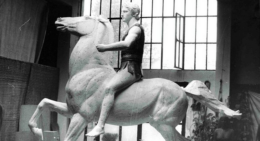Alexander the Great’s journey into ancient Egypt in the mid-4th century BC represented a significant merging of cultures. Although Egypt had a long history and famous pharaohs, it was under Persian control when Alexander arrived. Unlike previous invaders, he was seen as a liberator by the Egyptians, largely because he showed respect for their customs and religious beliefs.
When Alexander entered Egypt, he was met with acceptance rather than hostility, largely due to his strategic respect for Egyptian traditions. His reverence for the sacred Apis bull in Memphis illustrated his appreciation of the significance of Egyptian religious practices. By integrating himself into these traditions, Alexander aimed to connect with the Egyptian people, portraying himself as a kind ruler rather than a harsh conqueror.
Alexander’s restoration of Egyptian temples and monuments further emphasized his dedication to honoring Egypt’s cultural heritage. His actions showcased a sophisticated understanding of cultural diplomacy, aiming to bridge the gap between Macedonian rule and Egyptian civilization. Despite his short stay, Alexander’s impact on Egypt was significant, marked by the founding of Alexandria and his depiction as an Egyptian pharaoh in Luxor Temple, reflecting his lasting influence on Egypt’s rich heritage.
Ask me anything
Explore related questions





